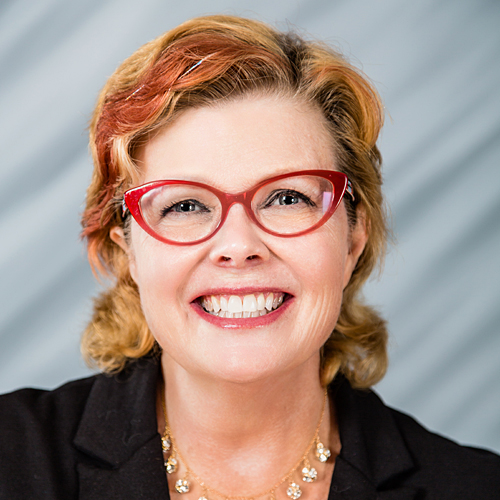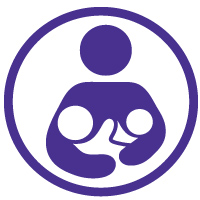 IBCLC Detailed Content Outline: Clinical Skills / Public Health and Advocacy Focused CERPs - Section VII E
IBCLC Detailed Content Outline: Clinical Skills / Public Health and Advocacy Focused CERPs - Section VII E
Access CERPs on Clinical Skills / Public Health and Advocacy for the IBCLC Detailed Content Outline recertification requirements. On-demand viewing of the latest Clinical Skills / Public Health and Advocacy focused IBCLC CERPs at your own pace.

Leadership Skills in Lactation: Make Extraordinary Things Happen

Paulina is the mother of three multicultural Latino children and Project Director for Lifespan Local. Paulina earned her BS in Psychology from the Pennsylvania State University, a MS in Organizational leadership from the University of Denver and is completing her PhD in Health and Behavioral Sciences at the University of Colorado - Denver. Paulina has over 18 years of experience working with families with young children. As a Maternal Child Health specialist for Jefferson County Public Health, she developed a NICU follow-up home visitation program and the pediatric emergency preparedness plan, co-founded and coordinated the Conectando Network (former Adelante Jeffco), established community navigation and lactation support groups focused on the Latino Spanish speaking community, and lead other initiatives to support leadership and partnerships among communities and organizations. During the COVID-19 pandemic, she managed the new program Whole Community Inclusion to ensure the pandemic response and recovery implementation included health equity practices that recognize the needs and the strengths of priority populations in the county. Her areas of current work include promoting perinatal and infant mental health along the continuum of care; building community capacity to navigate health and education systems; facilitating organizational change to embrace linguistic and culturally responsive practices; and establishing community-placed participatory programs to strengthen communities. She likes to be with people, learn from and with others, and connect passions for meaningful work.
Topic: From the NICU to the home: mother’s experiences - [View Abstract]
Topic: Leadership Skills in Lactation: Make Extraordinary Things Happen - [View Abstract]
Topic: Liderazgo en Lactancia - Para Alcanzar Metas Extraordinarias - [View Abstract]
Topic: Nursing A Preemie, Perspectives For Lactation Supporters and Professionals - [View Abstract]
Many of us come to work in breastfeeding envisioning a world where mothers and babies can breastfeed without barriers; however, we quickly learn that breastfeeding challenges go beyond latching and positioning.
To effectively support a breastfeeding/chestfeeding family, we have to support the parents, the extended family, the primary care provider, the workplace culture, the childcare, and the community; in summary, supporting one dyad can be an intervention to the whole social system. Indeed, breastfeeding advocacy is about building systems and consistently leading cultural changes to more deeply reinforce human feeding as the norm.
Kouzes and Posner (2012) state: “if you want to have a significant impact on people, on organizations, and oncommunities, you’d be wise to invest in learning the behaviors that enable you to become the very best leader you can.” With that in mind, lactation consultants and lactation advocates would benefit by learning leadership behaviors and skills that will support their efforts towards cultural change, inspire shared visions, challenge processes, becoming strategic advisors, and leading from the inside out.
Lactation leaders would benefit by being able to align values and beliefs with actions and strategies to promote breastfeeding as part of whole community development and as a public health strategy. In that way, lactation has a presence in early childhood initiatives, maternal and infant health, mental health programs, and any health, social, educational intervention.
Want to normalize lactation? Join this interactive session and become the leader who can make extraordinary lactation things happen in your community.
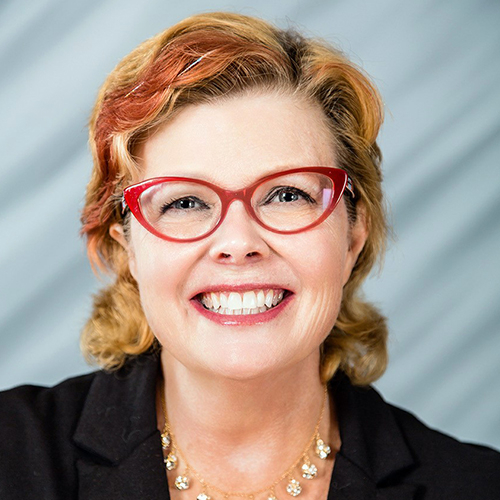
Lessons to Learn from Fed Is Best: How Can We Improve Our Care?

Dr. Kendall-Tackett is a health psychologist and International Board Certified Lactation Consultant, and the Owner and Editor-in-Chief of Praeclarus Press, a small press specializing in women's health. Dr. Kendall-Tackett is Editor-in-Chief of the journal, Psychological Trauma and was Founding Editor-in-Chief of Clinical Lactation, a position she held for 11 years. She is Fellow of the American Psychological Association in Health and Trauma Psychology, Past President of the APA Division of Trauma Psychology, and a member of APA’s Publications and Communications Board.
Topic: Breastfeeding Helps Mothers Overcome the Legacy of Abuse and Adversity: It Makes All the Difference - [View Abstract]
Topic: Burnout, Compassion Fatigue and Self-Care for Members of the Perinatal Team - [View Abstract]
Topic: Burnout, Secondary Trauma, and Moral Injury in Perinatal Care Providers - [View Abstract]
Topic: Does Breastfeeding Protect Maternal Mental Health? The Role of Oxytocin and Stress - [View Abstract]
Topic: Lessons to Learn from Fed Is Best: How Can We Improve Our Care? - [View Abstract]
Topic: Mother-Infant Sleep Location: It's Not as Simple as it Seems - [View Abstract]
Topic: Trauma and Breastfeeding: Working Effectively with Trauma Survivors - [View Abstract]
Topic: What’s New in Postpartum Depression? A Summary of Current Findings - [View Abstract]
Fed is Best is a foundation with a major social media presence who seek to warn parents and practitioners about the dangers of insufficient exclusive breastfeeding. Through their social media campaigns that have galvanized a backlash against exclusive breastfeeding, lactation care providers, and the Baby-Friendly Hospital Initiative. Although lactation specialists disagree with much of their content, they have raised awareness about mothers who do fall through the cracks of our care system and may suffer as a result. The steep drop-off in rates of exclusive breastfeeding is an indication of this. This presentation will examine three provider-level barriers that negatively impact breastfeeding and what we can do to improve care so that mothers will reach their breastfeeding goals.

View Details / Enroll

Liderazgo en Lactancia - Para Alcanzar Metas Extraordinarias

Paulina is the mother of three multicultural Latino children and Project Director for Lifespan Local. Paulina earned her BS in Psychology from the Pennsylvania State University, a MS in Organizational leadership from the University of Denver and is completing her PhD in Health and Behavioral Sciences at the University of Colorado - Denver. Paulina has over 18 years of experience working with families with young children. As a Maternal Child Health specialist for Jefferson County Public Health, she developed a NICU follow-up home visitation program and the pediatric emergency preparedness plan, co-founded and coordinated the Conectando Network (former Adelante Jeffco), established community navigation and lactation support groups focused on the Latino Spanish speaking community, and lead other initiatives to support leadership and partnerships among communities and organizations. During the COVID-19 pandemic, she managed the new program Whole Community Inclusion to ensure the pandemic response and recovery implementation included health equity practices that recognize the needs and the strengths of priority populations in the county. Her areas of current work include promoting perinatal and infant mental health along the continuum of care; building community capacity to navigate health and education systems; facilitating organizational change to embrace linguistic and culturally responsive practices; and establishing community-placed participatory programs to strengthen communities. She likes to be with people, learn from and with others, and connect passions for meaningful work.
Topic: From the NICU to the home: mother’s experiences - [View Abstract]
Topic: Leadership Skills in Lactation: Make Extraordinary Things Happen - [View Abstract]
Topic: Liderazgo en Lactancia - Para Alcanzar Metas Extraordinarias - [View Abstract]
Topic: Nursing A Preemie, Perspectives For Lactation Supporters and Professionals - [View Abstract]
Muchos de nosotros comenzamos a trabajar en lactancia visualizando un mundo donde las madres y los bebés pueden amamantar sin barreras; sin embargo, aprendemos rápidamente que los desafíos de la lactancia materna van más allá del prendimiento y el posicionamiento.
Para apoyar efectivamente a una familia que amamanta, debemos apoyar a los padres, a la familia extendida, al doctor, a la cultura del lugar de trabajo, a la guardería y a la comunidad; en resumen, apoyar a una familia se transforma en la oportunidad para afectar todo el sistema social. De hecho, promover la lactancia se trata de construir sistemas y liderar cambios culturales para reforzar más profundamente la alimentación con leche humana como la norma.
Kouzes y Posner (2012) afirman: "si desea tener un impacto significativo en las personas, en las organizaciones y en las comunidades, lo más recomendable sería invertir en aprender comportamientos que le permitan convertirse en el mejor líder que pueda ser". Con esto en mente, los consultores y asesores de lactancia se beneficiarían aprendiendo conductas de liderazgo y habilidades que apoyarán sus esfuerzos hacia el cambio cultural, inspirarán visiones compartidas, desafiarán procesos, se convertirán en asesores estratégicos y liderarán desde adentro hacia afuera.
Los líderes en el mundo de la lactancia se beneficiarían de poder alinear valores y motivaciones con acciones y estrategias para promover la lactancia como parte del desarrollo de toda la comunidad y como una estrategia de salud pública. De esta forma, la lactancia tiene presencia en las iniciativas para la primera infancia, la salud materna e infantil, los programas de salud mental y cualquier intervención sanitaria, social y educativa.
¿Quiere normalizar la lactancia? Participe de esta presentación y aprenda a liderar iniciativas de lactancia extraordinarias en su comunidad.
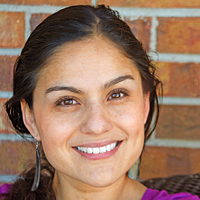
View Details / Enroll
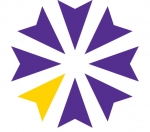

During a time when lactation professionals are facing unprecedented negativity on top of the usual challenges, it’s easy to get drawn into the conflict or to start wondering if what we do makes a difference. How do we lift one another up to maintain a positive focus on using our knowledge and skills to guide families who are feeling scared and confused? How do we set aside our biases to make sure we’re listening to all sides? How do we connect and collaborate with other professions to expand the network of support for new families? This panel discussion focuses on answering those questions and providing steps that can be taken to promote collaboration both within the field of lactation and with other members of the health care team to improve breastfeeding knowledge translation and mobilization. This is your chance to hear from Dr. Amy Brown, Christy Jo Hendricks and Joy MacTavish as they share their thoughts on this hot topic during our panel discussion titled “Lifting up the Lactation Profession”.

View Details / Enroll
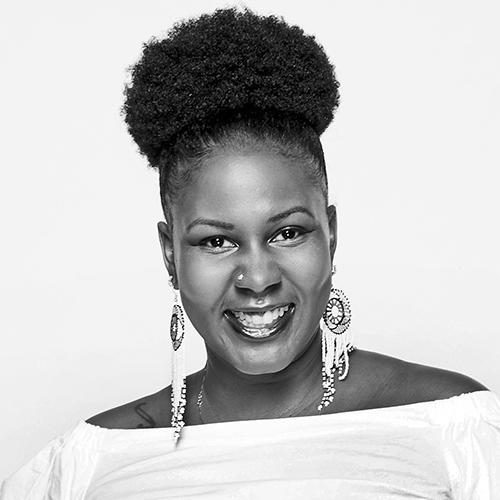
Meet Them Where They Are: Applying a Multidisciplinary, Equitable and Sustainable Approach to Breastfeeding and Lactation Practice & Promotion

TaNefer is an IBCLC, Maternal Health Strategist and Healer with over 15 years of experience in supporting families through birth, breastfeeding and postpartum. She has a background in psychology and Health education with an emphasis in community health and early career experience in counseling, social services and family advocacy. She brings a wealth of knowledge and experience as she helps her clients identify their challenges and lovingly guides them through a plan to overcome them. She has the ability to work with diverse populations and tailors support to fit the needs of each unique person or group. She educates parents, families and professionals on lactation, breastfeeding and maternal healing. She is also a researcher, serving as a Community Advisory Board member to the UCSF Preterm birth initiative and is also the Community Researcher and Relations consultant to the SACRED Birth Study. She has designed, implemented and evaluated programs in maternal equity and lactation and is the creator of the "Teach me how to breastfeed" song and viral music video. TaNefer Lumukanda Camara is also a Co-founder B.L.A.C.K Course.
It’s been a decade since the Surgeon General’s call to action to support breastfeeding. While great strides have been made to improve breastfeeding rates in the US, diverging societal conditions, disparate birth outcomes and changing family dynamics have necessitated adjustment and adaptation of more inclusive and multifaceted approaches to lactation support. With up to 34% of birthing people having experienced a traumatic birth, one study has shown how the effect on breastfeeding can go in either direction. If we factor in housing instability, mental health and race/immigration status we see greater disparities and/or differing needs according to the target population. However, the paradox is that these issues are not mutually exclusive, therefore a one size fits all approach is not sufficient. The COVID-19 Pandemic shed light on pre-existing gaps and disparities in this field and forced us to reimagine what breastfeeding promotion, protection and support should and can be. Implementing a multi-disciplinary plan to approach breastfeeding and lactation should be the trend moving forward. In this presentation you will learn how to:
Identify disciplines that can collaborate with lactation specialists to support breastfeeding promotion.
Discuss challenges in supporting populations with multiple needs and high risk.
Strategize a plan for reaching marginalized communities and populations at high risk and high need for lactation support.


Dr. Bond is a trained laboratory and social scientist currently studying the social and public health impacts of shared human milk. Specific areas of interest include development of the microbiome of the infant, immunological responses from the parent and infant, impacts of non-parental human milk on development of the immune response and microbiome, and risk abatement practices by participants in private arrangement milk sharing. She has been specifically trained in health disparities sciences and engages in research with a perspective on social justice, gender equity, and health equity. As a Hawaiian and Cherokee heritage scholar, she has a particular passion for colonial impacts on infant care and feeding practices.
In the absence of adequate banked donor human milk for distribution to all infants in need, many families choose to engage in the practice of Private Arrangement Milk Sharing (PAMS), partially facilitated through social media, to procure human milk for their infants. Evidence regarding the participant and infant characteristics, and risk abatement practices is limited. This presentation explores the state-of-the-science of PAMS, characteristics of recipient participants and infants, donor screening practices, and risk abatement strategies. Results are contextualized with a socioecological framework of factors affecting infant feeding practices. Influence of health care providers, lactation support, birth attendant, and sources sought during decision making and the impact of these influences on supporting families are discussed.

Peer Counselors In The Hospital; Taking Your Peer Counselor Program To The Next Level

Lisa Huffstetler is the mother of six children with years of personal breastfeeding experience. She has been an International Board Certified Lactation Consultant since 2011. Lisa began working with breastfeeding families as a Peer Counselor in 2008 as part of the Gaston County, North Carolina WIC's implementation of their Peer Counselor Program. She is passionate about helping new moms become successful in reaching their breastfeeding goals. Lisa is currently working as the Gaston County WIC agency's Lactation Consultant. She enjoys teaching breastfeeding classes, conducting staff trainings and working to keep staff updated on breastfeeding policy.
As a new grandmother, one of her new found interests is helping grandparents support their children appropriately in their new role as parents, especially in effective support of breastfeeding.
Hospital visits from a Peer Counselor just after delivery can have a tremendous impact on breastfeeding for mom and baby. Evidence-based research shows that Peer Counselors can share an important role in the success of breastfeeding for families. Peer Counselors making an early connection and reminding families that there is someone here to help them with their breastfeeding journey, now and after mom and baby discharge from the hospital, can be very comforting for those nervous new parents. Often, a short visit from a Peer Counselor to reassure a new mother that she is right on track with breastfeeding is just what mom needs to encourage her for the learning period she is going through. Learn about the success stories of a Peer Counselor Program from the implementation of hospital visitation through years of success in hospital visits and the difference it has made in their Peer Counselor Program participation and breastfeeding numbers.
There are challenges to getting Peer Counselor hospital visits started. It may not be as easy to get your foot in the door as you would think. We will discuss some of the red tape situations you may encounter as you start trying to set up hospital visits. Adding hospital visits to your Peer Counselor activities can have a positive impact on your Peer Counselor Program and increase breastfeeding rates for your area.

View Details / Enroll

View Details / Enroll
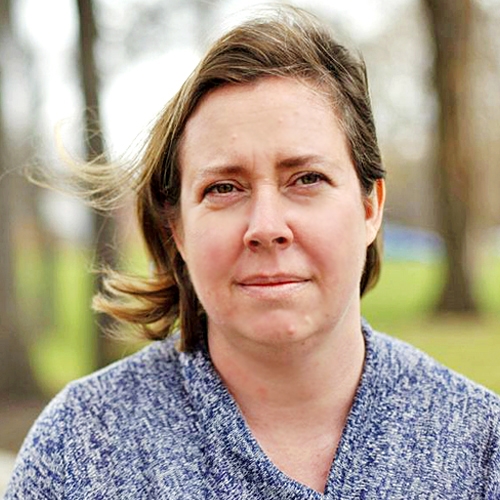
Playing Well with Others: Collaborating in High Conflict/Low Trust Settings

Michelle Pensa Branco MPH IBCLC is a lactation consultant and public health advocate. In addition to her clinical practice, which has included in-hospital, outpatient and private practice settings, she advocates for improved maternal-child health practices at the local, national and global level. She has a particular interest in the impact of trauma to breastfeeding families, models of peer support to improve breastfeeding outcomes and the application of health communication principles to the promotion and protection of breastfeeding. Michelle serves as the Director of Peer Support Programs and provides clinical lactation expertise for Nurture Project International, the only international NGO focused exclusively on infant feeding in emergencies. With Jodine Chase, she co-founded a Canadian non-profit organization, SafelyFed Canada. She is also an active member of the Ontario Public Health Association’s Breastfeeding Promotion Working Group. Michelle has previously served as the Vice-Chair of La Leche League Canada, the Communications Director for the Canadian Lactation Consultants Association as well as the Toronto Coordinator of INFACT Canada. When she is not travelling for work, Michelle stays close to home, living with her family just outside Toronto, Ontario, Canada.
Topic: Keeping the Fox Out of the Chicken Coop: Safeguarding Your Reputation Against Baby Feeding Industry Influence - [View Abstract]
Topic: Playing Well with Others: Collaborating in High Conflict/Low Trust Settings - [View Abstract]
Topic: Watching Our Words: Is Risk-Based Language Always the Right Choice? - [View Abstract]
Collaboration is the foundation of the work of lactation professionals. As allied health providers, the team approach is at the centre of our professional relationships. Differences in professional practice and standards of care are aggravated by health care systems that are fragmented and operate in silos, while the high emotion and urgency of infant feeding concerns interfere with reasoned collaborative decision-making. Where adequate training, workplace policies and management oversight fail, conflicts within the team may escalate to incivility, lateral violence and bullying. IBCLC must be able to name and act when conflict crosses these boundaries.
At a policy level, the problems facing breastfeeding are among the most "wicked" of public health's "wicked problems".
In perpetually resource- limited settings, the challenges of policy-making, good governance and innovative programs require effective collaboration and co-operation within and across organizations.
Limited time and energy is available for the enormous work required to provide excellent care to families and create societies that fully support them to breastfeed their children for as long as they wish to. Moreover, because of the intensity of the "wicked" problems we face and the urgency of resolving them both in individual cases and at the policy level, conflict and erosion of trust often occur. Because we cannot only work with those we would like to work with to accomplish our goals, we must learn "stretch collaboration", explored using Adam Kahane's model of working in absence of friendliness, agreement or trust.

View Details / Enroll
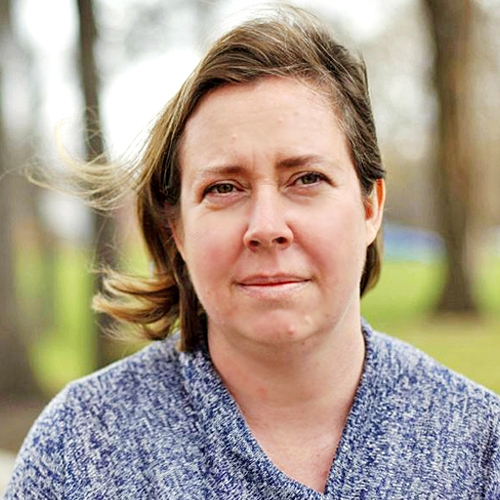
View Details / Enroll
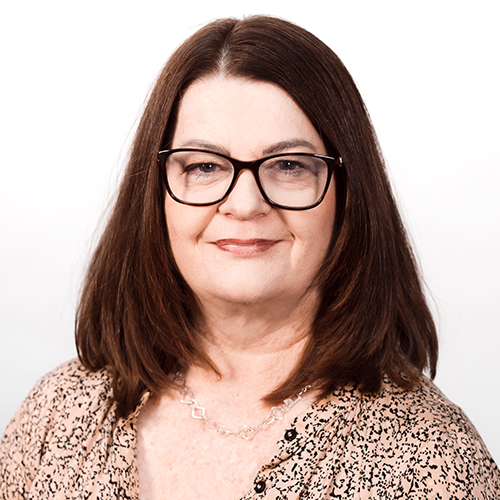
Responsive Breastfeeding: The Key to Optimal Infant Development

Martina Donaghy is a registered midwife of 30 years, an IBCLC of 22 years and a Senior Midwifery Lecturer of 17 years’ experience. During the past two decades her main posts as a hospital based Infant Feeding Specialist and a Midwifery Lecturer has seen a focus on educating registered midwives, student nurses, midwives, paediatric and Specialist Community Public Health nurses on the importance of breastmilk and breastfeeding, ensuring these students are equipped to support the breastfeeding mother in achieving her feeding goals. Martina has led and supported her university to achieve successful UNICEF UK Baby Friendly accreditation for the BSc Midwifery and Specialist Community Public Health Nursing programmes. She also teaches on the Midwifery Master’s program specialising in the promotion and support of physiological birth, breastfeeding, biological nurturing, and maternal, infant attachment. Recent publications include a chapter in Examination of the newborn and neonatal health, titled Helping parents make decisions regards to infant feeding and cosleeping. Her most recent midwifery article focused on supporting maternal and infant physiology after birth. She is originally from Australia and has resided in the United Kingdom for 30 plus years.
From the moment of conception, maternal and fetal physiology is intrinsically linked in a synergistic partnership, with optimal infant development dependent on this relationship continuing well into the infants first 1001 days. A key pivotal facet of this reciprocal relationship is responsive breastfeeding. Responsive breastfeeding is far more than a way of infant feeding, but a sensitive synchronous parenting style that secures optimal growth, nutrition, immune development, infant /maternal attachment, whilst fostering successful lactation and the development of positive feeding habits well into infancy. This presentation will explain what is meant by responsive breastfeeding, exploring the science behind how this type of feeding promotes optimal infant health.
The presentation will conclude with an exploration of the wider benefits of responsive breastfeeding, examining the possibility of this type of feeding style contributing to improving several public health issues, in particular childhood aversity and obesity. Lastly, recommendations for promotion and support of responsive breastfeeding will be outlined.
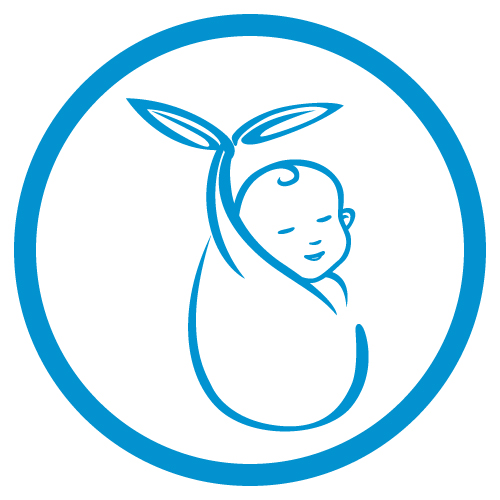
View Details / Enroll

Scaling Up Skills and Reliability of Breastfeeding Peer Counselors - 7 Years of Malaysian Experience

Nadrah Arfizah Arifin (MBBS, MPH, IBCLC) is a medical professional in public health and a lactation consultant who obtained her medical degree from University of Malaya, Kuala Lumpur in 2004. Her involvement in breastfeeding support and advocacy started in 2007 as a local breastfeeding supporter at her workplace. She further involved in community-based breastfeeding support voluntarily by joining the Malaysian Breastfeeding Peer Counselor Association (MBfPCA) in 2010. She became the first breastfeeding peer counsellor of MBfPCA who successfully upgraded to become the program trainer in 2011 to 2012, thus making the framework for Train of Trainer program in MBfPCA in effort to further grow the network. She is currently the President of MBfPCA and together with other Core Trainers, they plan for sustainability of breastfeeding support by peer counsellors for Malaysian community. While doing her Doctoral degree in Public Health (DrPH), she is also working on few projects in MBfPCA particularly in capacity building of breastfeeding peer counselors with the interest of maintaining its integrity, reliability and relevancy through monitoring and evaluation of community breastfeeding support program.
The roles of peer counselors (PC) in breastfeeding support is important to reach mothers and families in community as they would bridge the gaps within the warm chain of breastfeeding support. However, challenges has overcome in many forms, especially their reliability in providing breastfeeding support skills and knowledge. Malaysian Breastfeeding Peer Counselors (MBfPC) program has started in 2010 to enhance breastfeeding support for Malaysian community. Its training syllabus were adapted and modulated to be culturally acceptable. More than 500 PCs were trained.
The original syllabus was continuously being revised prior to each training since Malaysia is multicultural with great diversity, with few adaptations of new tools to enhance the understanding among the trainees whom majority are not health personnel. MBfPC Association (MBfPCA) is responsible to reliability queries by other parties, thus overseen the needs for MBfPC training reform. Three training levels were introduced in 2016; entrance, advanced, and train-of-trainers; to increase reliability of certified PC, even though the sustainability of the network is yet to be observed. The mechanisms used to select, train and certify the PCs had strengthened the roles and functional relevancy of MBfPCA existence in Malaysian scenario. This presentation will share the challenges and framework of capacity building among PCs to function as breastfeeding peer supporters in Malaysian context.

View Details / Enroll



